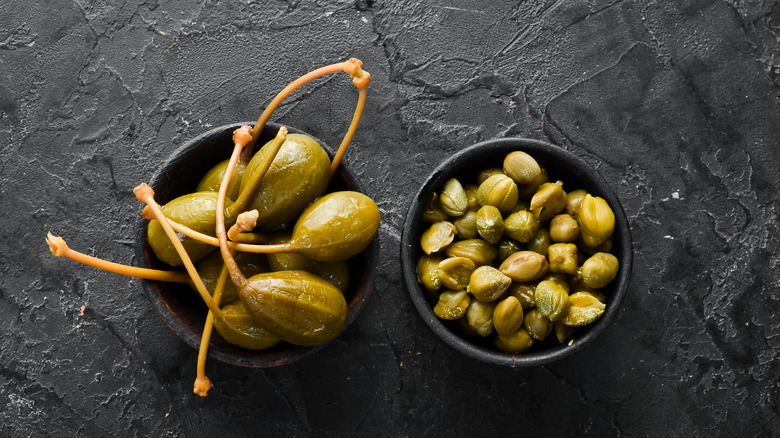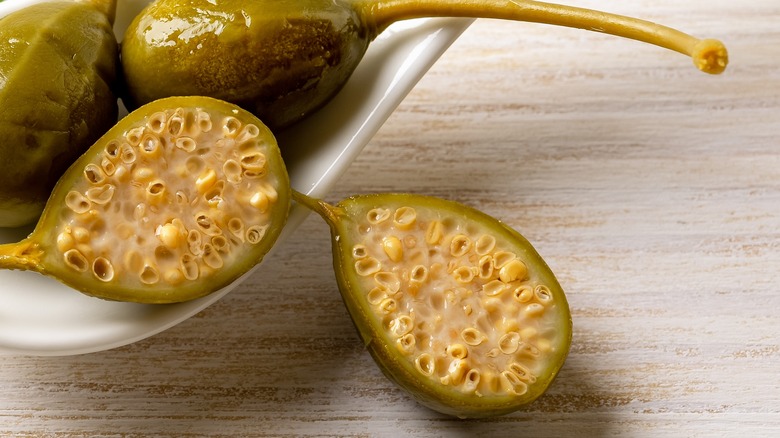Capers Vs. Caper Berries: What's The Difference?
There's more than meets the eye when it comes to capers — namely, caper berries. While it might sound like those two ingredients are interchangeable, that's not the case. The buds and berries have stark differences in harvesting, appearance, and flavor.
Capparis spinosa, as it's dubbed in the scientific realm, is a prickly bush that grows mainly in the Mediterranean and Asia, reports Food Network. Closely related to the mustard family, it isn't hard to understand why both capers and caper berries tend to have a salty and almost lemony tang, accentuated when packed in brine or salt. Even though they have a flavor similar to green olives, they also have distinctly herbal and floral undertones that make them all the more unique.
A fixture in Greek and Italian cuisines, these two chartreuse-colored morsels aren't just a colorful garnish — they can also add significant texture and tang to dishes like caper-crusted filets of fatty fish, rich tomato pasta, and decadent chicken schnitzel. If the mention of delicious recipes isn't enough to make you want to pick up a jar, the Brazilian Journal of Pharmacognosy even claims that capers and their berry relatives have anti-inflammatory, antifungal, and anticarcinogenic properties.
To blossom, or not to blossom?
While they both maintain the same origin story, periods of harvesting are what differentiate capers from caper berries. According to Fine Cooking, caper bushes produce tiny flower buds (capers) that, when left to blossom, will eventually turn into fruits (caper berries).
Picked and packaged with the stems intact, caper berries look like a cross between a green olive and a stemmed cherry. Given their larger size, caper berries have a more subtle flavor but increased texture due to the seeds inside, unlike seedless capers. In fact, Superfoodly reports that a typical caper berry might have hundreds of soft, tiny seeds.
Both capers and caper berries are usually packed in salt or brined in vinegar like capers. When it comes to storing jars of caper and caper berries, The Spruce Eats recommends keeping brined capers in the fridge for up to 9 months, whereas salted capers can be stored at room temperature for up to 6 months. Like anything, if you notice discoloration or strong odors, that could be a sign it's time to toss that jar of tangy caper berries.

